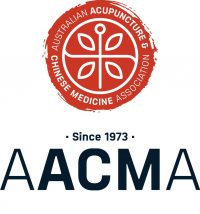By Waveny Holland, President of Australian Acupuncture & Chinese Medicine Association Ltd (AACMA)
A new baby in the home is both exciting and daunting.
Even if well planned, there are many changes and adjustments needed to accommodate that new and precious little life. It is normal for new parents to be nervous and lack confidence in their ability to care for their newborns. Your emotions are running high, and there is an overwhelmingly strong desire to love, protect and nurture this tiny and vulnerable new addition to the family.
It is thought the same hormones that generate those feelings of love also contribute to post-natal depression.
Post-natal depression is a recognised mood disorder that is entirely separate from the “baby blues,” which about 80% of new mothers experience 3-5 days after their baby is born that resolves within two weeks.
Continued feelings of deep sadness, anxiety, worthlessness, being overwhelmed, and an inability to care for your baby are some of the symptoms of post-natal depression.
There is a higher risk of post-natal depression if there is a personal and or family history of depression; you experienced post-natal depression after a previous pregnancy; or if diagnosed with bipolar disorder.
Other risk factors include the stressors of life such as finances, work, the physical demands of caring for a new baby that includes hormonal fluctuations, lack of sleep and time for self and your partner, and proper or adequate nutrition and exercise.
It is not just the new mother, but also the new father can suffer depression after the birth of their baby, and it is not caused by anything that a new mother or father does or doesn’t do or has or hasn’t done
Post-natal depression is a western medical term for a set of what Chinese medicine calls disharmonies.
Chinese medicine is a holistic medicine that considers and treats the impact of illnesses, diseases, and conditions on the whole body, the mind, and spirit.
The basis of Chinese medicine is the concept of Qi (pronounced ‘Chee’) put simply; the energy of the body and the way it flows throughout the body.
We further differentiate Qi into Yin Qi and Yang QI.
If the Qi is flowing in harmony with the appropriate balance between Yin and Yang, you have wellness, ease, and function. If there is an imbalance, interruption or obstruction to disharmonise that natural flow, illness, disease, and dysfunction are the result.
Just as a doctor will look at your signs and symptoms {for example} of an infection (disharmony), and diagnose whether it is a bacterial or viral infection (pattern), a registered Chinese medicine practitioner will look at the signs and symptoms of a disharmony and diagnose a pattern.
Many, many Chinese medicine patterns include the signs and symptoms that would be diagnosed as post-natal depression in western medicine, including Liver Qi stagnation, Liver Qi stagnation with Spleen Qi deficiency, Spleen and Heart deficiency, Qi and Blood deficiency, deficiency of Liver Blood or Liver Yin and the almost poetically named pattern of Phlegm Misting the Mind, which is a clear description of the lack of clarity in thought, being confused, emotional and unable to speak or function that can occur with post-natal depression.
Why are there so many patterns for post-natal depression in Chinese medicine? Because no two people are the same, nor do they exhibit or experience the same signs and symptoms or live under the same conditions or family circumstances.
These distinctions and their impact on mood becomes more evident when you consult a Chinese Medicine Practitioner. The Chinese Medicine Practitioner will take an extensive medical and family history, including any current medications or supplements and details of your complaint, as well as feeling your pulses and looking at your tongue. Both are valuable diagnostic tools in Chinese medicine. Specific symptoms or signs will be more pronounced, and that will then inform the diagnosis and give rise to the drug-free treatment that is absolutely individualised for you at that time.
The treatment plan may include acupuncture, Chinese herbs, Tui Na (Chinese remedial massage), diet and nutrition advice; including using food as medicine; and lifestyle changes such as exercise and mindfulness that are vital to good physical, mental and emotional health that are easily assimilated into your day to make looking after yourself and your baby easier and as enjoyable as it should be.
Whether it is acupuncture, Chinese herbal medicine, or a combination, Chinese medicine treatments can also be integrated into your western medicine treatment plan giving you the best of both worlds.

The Australian Acupuncture and Chinese Medicine Association (AACMA) is the peak professional association representing the majority of registered Chinese medicine practitioners in Australia since 1973.
AACMA practitioner members have a minimum 4 year Bachelor degree to meet the registration standards of the Chinese Medicine Board of Australia and high standards for membership of the Association ensuring the public of a quality treatment by a registered health professional.
The easy to use practitioner search function on the AACMA website enables you to find an AACMA practitioner close to you.
https://members.acupuncture.org.au/practitionersearch

You may also like to read:









